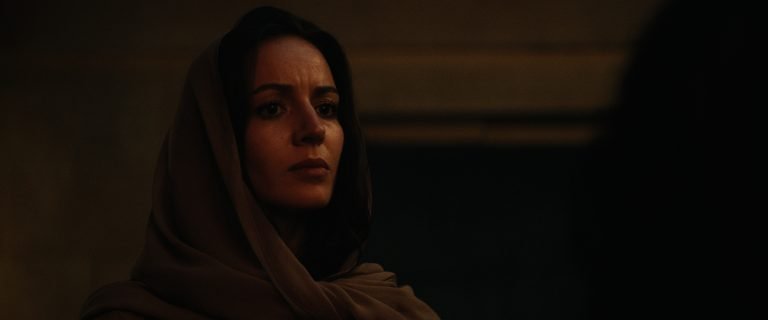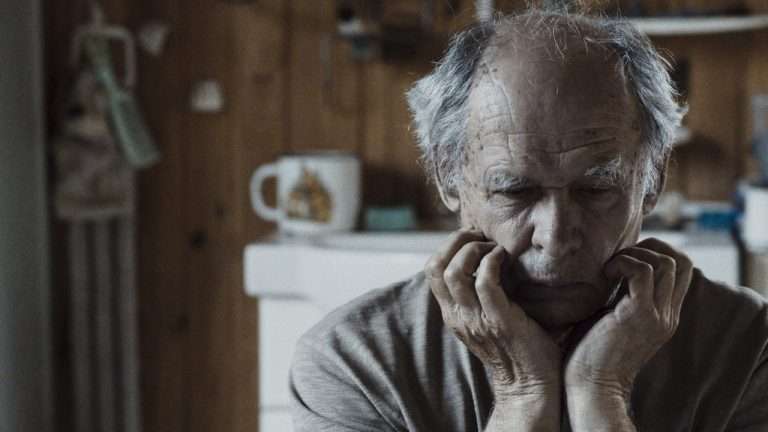Joanna Hogg’s oeuvre boasts of intimate expeditions into the nitty-gritty of what has often been called the ‘human condition.’ Her films often maneuver the entangled lives of her characters, deftly intertwining temporal and psychological tropes. Her semi-autobiographical drama, consisting of “The Souvenir” and “The Souvenir Part II,” comes to a close with the brilliantly subdued aftermath—”The Eternal Daughter.”
Though formally part of the trilogy (as it follows filmmaker Julie and her mother Rosalind—characters who have been introduced in the former films), this third installment has a certain outlandish feel to it. Hogg has chosen a backdrop that allows her to magnify and examine her characters in isolation. This ghost of a film is a reminiscence of what was, as an imminent end breathes on its shoulder, and is truly a souvenir in essence.
“The Eternal Daughter” is a tale that comes undone— it gives nothing tangible except questions that cannot be answered in words. Yet, the film’s poignancy lies in its silence, even though the viewer is left with a plethora of circumstantial questions by the end. I have set myself the task of exploring the insidious and cross-linked themes that underline the sparse storyline. However, I would suggest that the reader abandon all hopes of a rational analysis from this article, as one must leave the realm of reason to appreciate the magnificence of this epilogue.
The Eternal Daughter Plot Summary
Is This Place a Refuge or a Prison?
As the curtains are drawn, a car is seen to be cutting across a dreary, mist-laden landscape. A middle-aged Julie (Tilda Swinton), her wizened mother (Swinton, again), a dog, and their chauffeur seem to be the only signs of life. Perhaps the immense desolation and the restlessness that accompanies it can be best expressed by the opening line of Rudyard Kipling’s short prose, ‘They’ – ‘One view called me to another; one hilltop to its fellow, half across the county, and since I could answer at no more trouble than the snapping forward of a lever, I let the county flow under my wheels.’ Thus, it is no coincidence that this gothic tale is alluded to later in the film, as Julie is seen to be reading this.
Conversationally the chauffeur mentions that he has felt an eerie presence in the place that they are heading towards, so he prefers to avoid it on dark winter nights. Interestingly, Julie does not seem to be too perturbed by his account. Presently, they arrive at an ominous-looking estate-turned-inn. The young lady at the reception (Carly-Sophia Davis) gives them a tepid welcome. She is not very cooperative. A certain uncanniness lingers in the air. It is reinforced by the sudden squalls and window creaks. Later at night, Julie watches a car pick up the receptionist. She suspects that they might be the only residents of the inn. In fact, a distinct feeling of unsettlement grips her throughout the night as she succumbs to the noises of windows banging in the room above her.
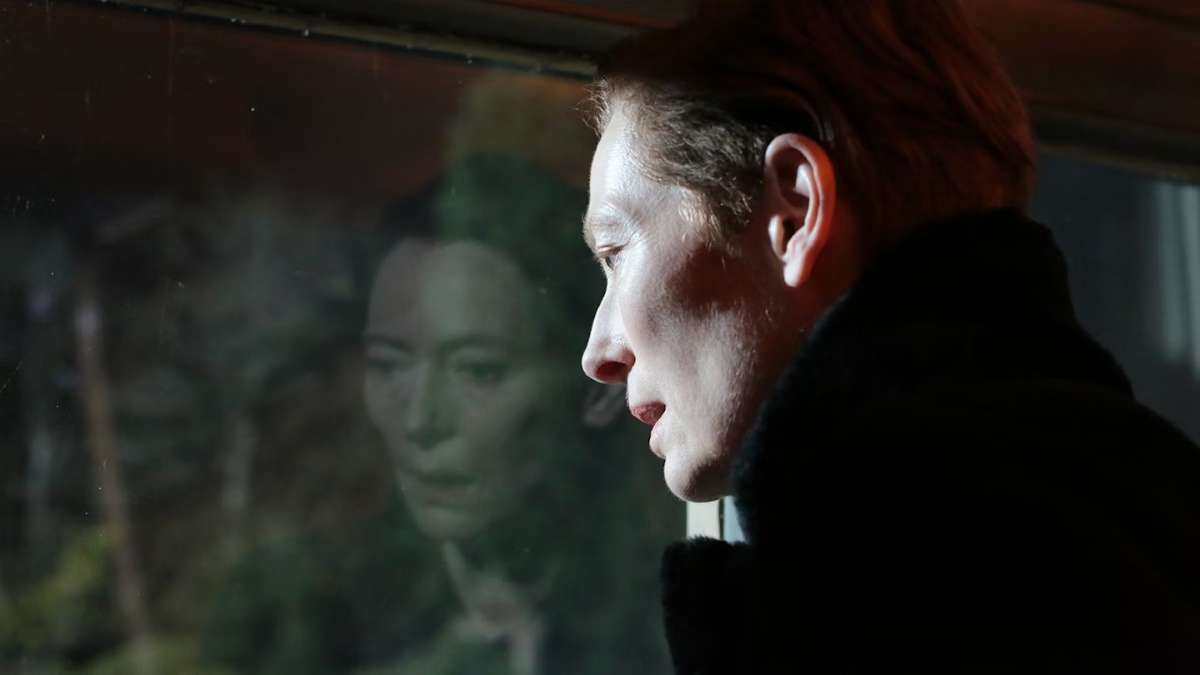
The Getaway in The Eternal Daughter: Unraveling Julie’s Motives
During meals, they find themselves being the only people in the dining room. They wonder if they are the sole residents of the inn. The receptionist, who also happens to wait on them, seems to be reluctant to serve them and rushes through the job. Through conversations, it is revealed that Rosalind has spent a considerable time of her childhood in this estate, which belonged to one of her relatives. So, for her, this place was not merely leaden walls from a forgotten era but alive and burdened with an inescapable past. Julie wants to make a film about her mother. Based on the knowledge that her mother had many happy memories here, she has arranged for this getaway to know her mother better and to start writing for her film.
Soon, their days take a monotonous turn, interspersed by uncanny events. Julie struggles to write even a word. They have all their meals by themselves. Every night, the receptionist leaves. Julie encounters unexplained noises and is unable to sleep. But the receptionist insists that no one lives in the room above her. The dog becomes restless at night. On her nightly strolls, she often sees a woman’s face at the window of one of the rooms.
Is Bill the Innkeeper a Beacon of Hope or a New Mystery?
However, their scanty conversations are laden with intricate emotions, one inseparable from the other. When her mother recounts how she lost one of her cousins as a child and was in one of those rooms when she got the news, Julie finds it extremely disconcerting. She blames herself for her mother’s sadness and says she always wants her to be happy. A similar and more intense episode of agitation follows when her mother talks about her miscarriage when she was living here for a brief stretch and how that caused her to be churlish with her (now dead) husband. Often, Julie is furtively seen to be recording her mother’s words during their casual conversations for her script. To her, it is a breach of her mother’s inner life, which she feels she is not privy to.
On one of the subsequent nights, Julie encounters another genial presence in the mansion. Innkeeper Bill’s (Joseph Mydell) character feels like a ray of light that briefly mollifies the gloom. He develops a friendly bond with both Julie and her mother. He talks about his late wife with a certain fondness. Julie tells him about her struggles with her film. Rosalind tells him about her concerns about Julie being childless and having no family except her.
A minimalist storyline, a haunting background score, and a painfully somber mise en scene give the film a quality of claustrophobia. It feels as if you are holding your breath for too long but never get to release it. A deep tension lurks beneath a placid surface and only rarely breaks through, except towards the very end.
The Eternal Daughter Ending Explained
Is the Birthday Dinner a Celebration or a Prelude to Tragedy?
The final showdown takes place on Rosalind’s birthday. Being a meticulous daughter, Julie lavishes her with elaborate meals and primly wrapped presents. But Rosalind appears to be paler than usual. Careful not to hurt her daughter’s sentiments or concern her, she reluctantly admits that she doesn’t have much of an appetite. Julie begins to fuss over her and says she will only eat if Rosalind eats. Furthermore, the conversation that follows is one of the best sequences in the film. Although repetitive and trivial, this exchange of dialogue where Rosalind and Julie urge each other to eat is a liminal space where their patience is seemingly tested, and the façade begins to fall apart.
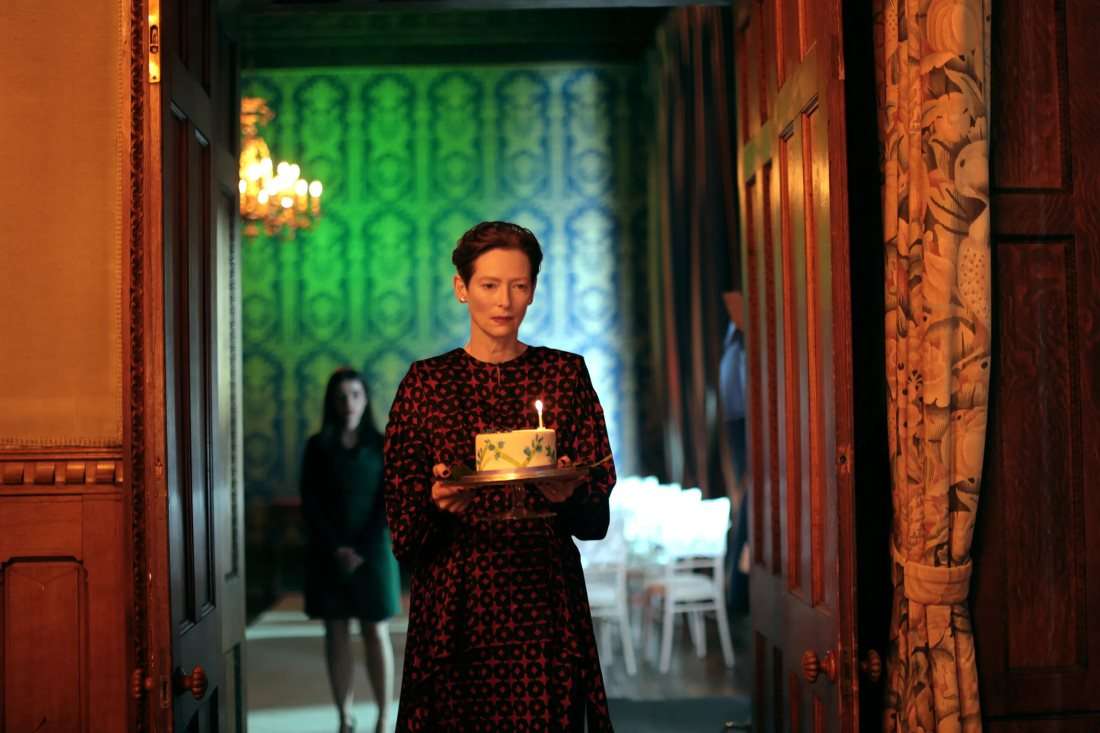
Ending of The Eternal Daughter: A New Beginning or Haunting Illusion?
Thus, it leads to a naked yet somewhat restrained confrontation, where Julie complains about always trying to make her mother happy but never quite getting it right and breaks down into tears. Her mother seems to be strangely pensive. The receptionist walks in and asks her if she is ready for the cake. She leaves the table, gives her a few instructions, and brings in the cake herself while chanting ‘Happy birthday. The receptionist keeps on staring at her, awestruck. When she sits at the table and blows out the candle herself, the camera zooms out to capture both characters in the same frame for the first time. But only Julie is seen sitting at one end of the table with a birthday cake and an empty chair at the other end.
Later, Julie is seen to be curled up in a fetal position on her bed, weeping to herself. Bill knocks at her door and reassures her briefly. The next morning, she is seen having her mother’s favorite breakfast (marmalade toast) and working on her story. When she leaves, the receptionist asks her if she is feeling better. In fact, it feels as if the fog has lifted from the place. Now, the other people are seen around the reception area, including Bill, as she boards her cab and drives off.
What is Real and What isn’t?
As an afterthought, one would realize that many pointers were planted throughout the duration that builds up to the twist-in-the-tail ending. The hostility of the receptionist was possibly due to fear and confusion. The mother is never seen talking to the receptionist directly. Neither does she agree to meet a cousin who shows up. There are indicators of the fact that the mother might have met her end in this hotel (Julie’s visions of Rosalind on her deathbed). But the timeline is left obscure. It is also unclear whether her relatives know about her death or Julie’s condition. We do not know if Bill is real. Or, if the apparitions that troubled Julie were only manifestations of her own anxiety.
One might run out of possibilities while trying to fit all the pieces of this tale together into a system of reason. The line between the real and the unreal is often dangerously blurred, as in a dream. What stays throughout is a fleeting, intoxicating feeling that finds its place only in a metaphysical context.
Is the Film’s Ending a Mirror Reflecting Our Inner Battles?
Hogg’s attempt to capture the undulations of a mother-daughter relationship reminds me of Bergman’s “Autumn Sonata,” which teemed with intense and taxing confrontations that reveal the vices of human relationships. But here, under the pretext of two intimately related characters, Hogg brilliantly converges the exploration of Julie’s relationship with her own past. Moreover, it is quite evident from the very beginning that she is in denial about something real. She perceives her mother as a unidimensional person who is only capable of harboring happiness and tries to shield her from everything else. Possibly, that is the reason why she is not able to write about her. She is too afraid to go beyond the surface, too afraid of what she might encounter beneath it.
The ending is a trope for Julie’s acceptance of reality. Her grief liberates her from the memory prison that she had built for herself. She no longer seeks to escape her desolation. The adequately elaborate setting of the inn is only reflective of her state of mind at any point in time. The film gives you a glance at something of the essence but does not let you ponder over it much, lest reason should spoil it. Perhaps all of our relationships are battles with our own centered selves that try to define and shackle the other within its scope.
Related: Here’s Where To Watch And Stream Tilda Swinton’s New Movie ‘The Eternal Daughter’ Online
The Eternal Daughter (2022) Movie Links: IMDb, Rotten Tomatoes

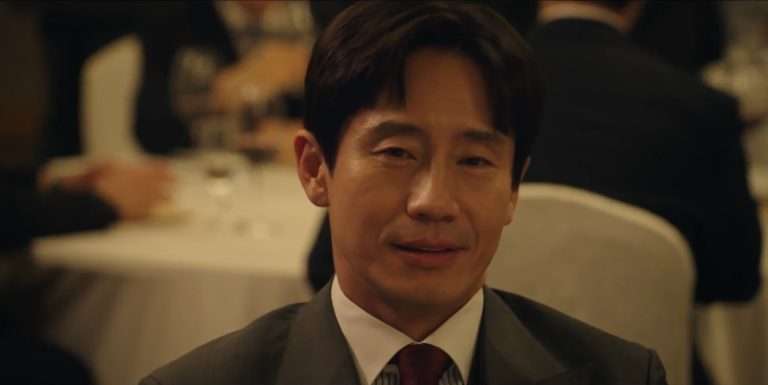

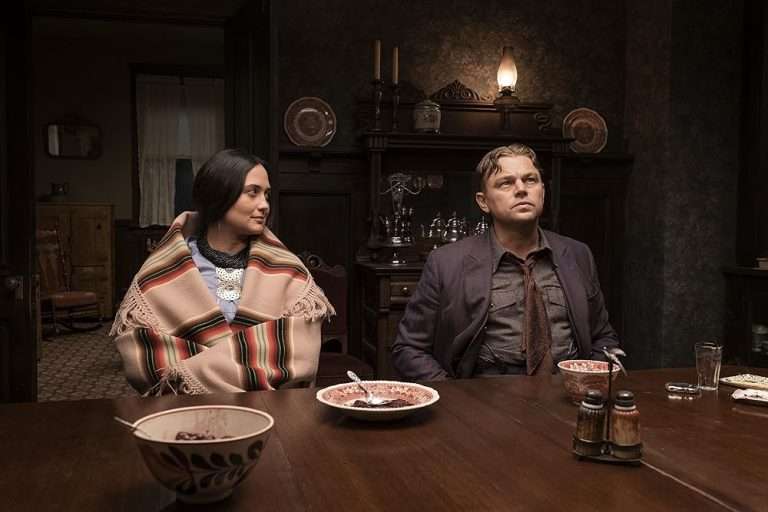
![Limbo [2020] Review – An Uneven yet Captivating Dramedy about Asylum-Seekers](https://79468c92.delivery.rocketcdn.me/wp-content/uploads/2021/07/Limbo-2020-768x561.jpg)
